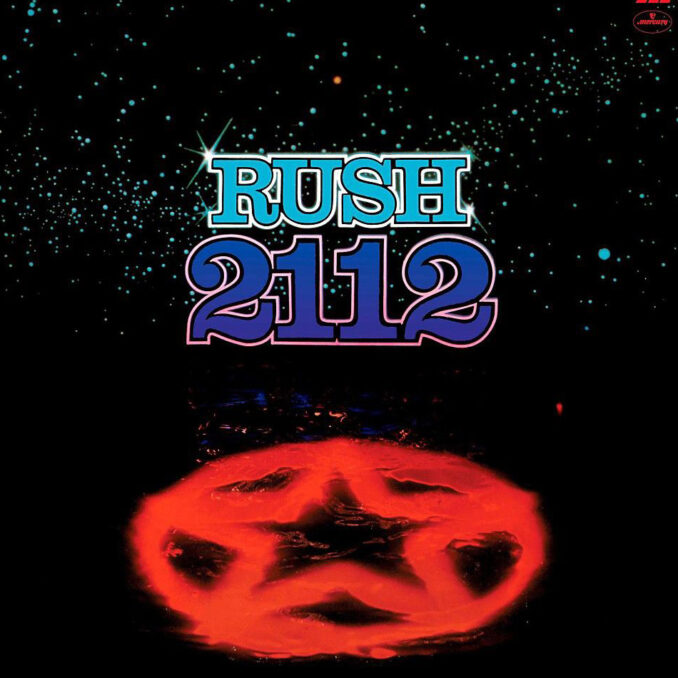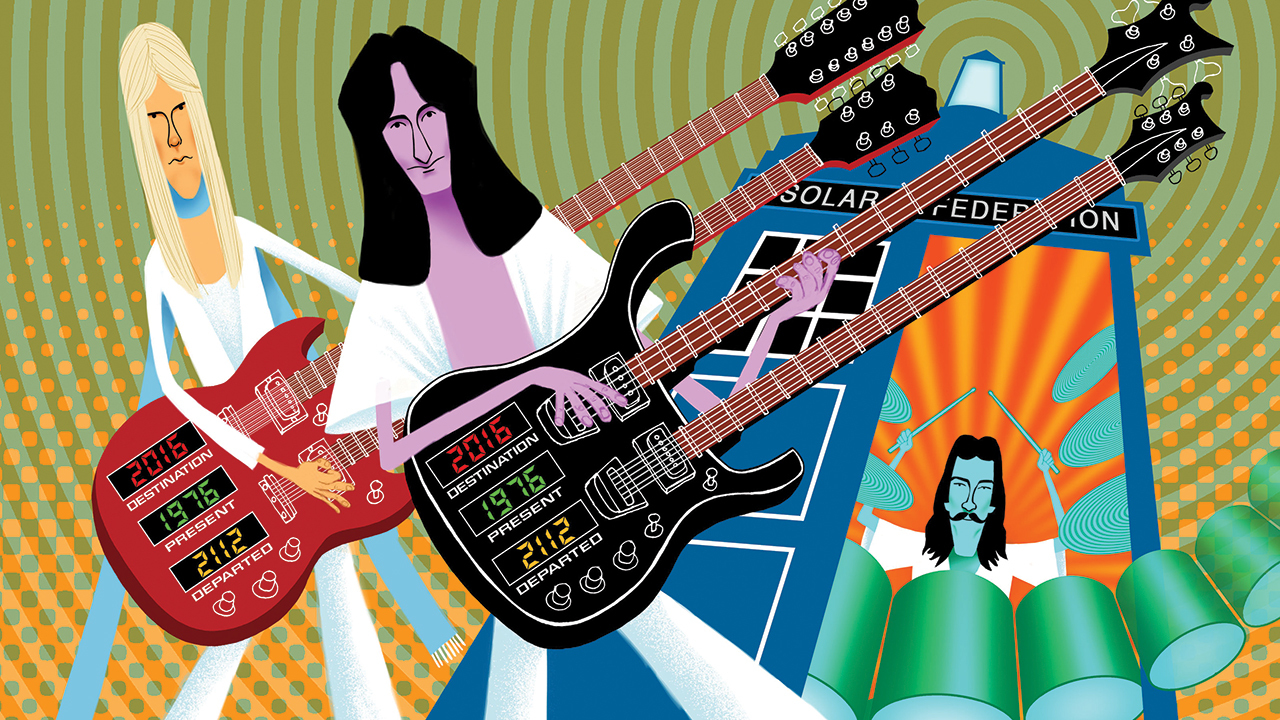

Movement VII, “The Grand Finale”, is the beginning of another planetary war with the ambiguous spoken ending “Attention all planets of the Solar Federation: We have assumed control”. Our hero, depressed that such a planet will never exist under the Solar Federation, commits suicide in Movement VI, “Soliloquy”. Movement V, “Oracle: The Dream”, our hero dreams of a new planet where the creative population live. The priests then angrily destroy the guitar and banish our hero. Movement IV, “Presentation”, is our hero bringing the guitar he found to the priests in the Temples who dismiss the find as “nothing new”. Movement I is the Overture, which also borrows a run from the 1812 Overture, Movement II describes the priests who reside in the Temples, Movement III, “Discovery”, shows the hero of the story discovering a guitar in a cave, and the lost art of making music. Side one of 2112 contains the story, in movements. Something very seldom seen in modern rock music. The album even has an Overture, and movements. A galaxy war resulted in the planets joining the Solar Federation. The population are controlled by Priests who live inside the Temples of Syrinx. This story is set in the city of Megadon in the year 2112, where individualism and creativity are outlawed. Peart’s lyrics strongly resembled a book from Ayn Rand, “Anthem”, and he even credits her in the liner notes, which Rush caught flak for later on accusing them of being right-wing extremists and even Nazis, which particularly offended Lee, whose parents survived the holocaust.

Drummer and lyricist Neil Peart started writing about a dystopian future world where music is banned, and Lifeson and Bassist and vocalist Geddy Lee would write the music to fit the mood of the lyrics. The band had already been tossing around ideas for a new album. Rush’s manager Ray Danniels convinced the bigwigs at Mercury Records to give Rush one more chance, and Mercury obliged.

#RUSH 2112 ALBUM REVIEW HOW TO#
What to do next was a massive question that nobody knew how to answer. Guitarist Alex Lifeson has stated that this was the only time in Rush’s history that he considered giving up. Mercury Records considered dropping them because of that, and also due to the band’s refusal to abide by the company’s request to produce something “more commercial”. In fact, they saw the lowest turnout in their short history. The album didn’t sell, radio wasn’t touching it, and people weren’t flocking to see them live. In 1976, the conclusion of the tour for their previous album “Caress of Steel” was disheartening at best. REVIEW – It’s hard to believe that there was almost no more Rush albums after 2112.


 0 kommentar(er)
0 kommentar(er)
